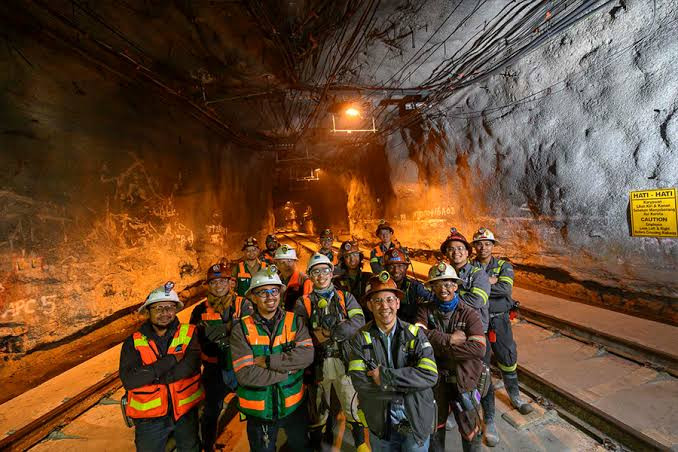Popular Reads
Top Results
Can't find what you're looking for?
View all search resultsPopular Reads
Top Results
Can't find what you're looking for?
View all search resultsPartnership serves as basis for successful mineral downstream business in Indonesia: Study
Change text size
Gift Premium Articles
to Anyone
A
new study by a lecturer team from the Economics and Business (FEB) program at Malang Brawijaya University (UB) highlighted the importance of strategic partnership, serving as a foundation for ensuring the advantages of developing the mineral downstream industry to benefit the people and bolster inclusive economic growth.
In a report titled Final Report on Developing Partnerships Between Communities, Regional Governments and Companies to Optimize the Benefits of Developing Downstream Businesses, key researcher Hendi Subandi focused on the successes of partnership models in several regions as a tangible example of the positive impacts of downstream business development.
In Gresik, PT Freeport Indonesia (PT FI) successfully engaged the local community through a communication forum, Rembuk Akur, which facilitated recruitment. The forum created jobs for people in nine villages and underpinned local micro, small and medium enterprises (MSMEs) engaged in providing industry-supporting goods and services. The local MSMEs were also empowered to meet the company’s logistics needs, including typical Gresik batik uniforms for PT FI employees.
PT Borneo Alumina Indonesia (PT BAI) provided a community in Mempawah with an opportunity for a new venture through a strategic partnership. The initiative involved the development of MSMEs engaged in supporting sectors, such as food stalls, rental rooms and grocery stores, which brought significant economic impacts for the local community.
“Developing downstream business has a wide positive impact. Through a partnership that involves diverse sectors, local communities can harness the benefits in in inclusive manner,” Hendi said.
The research showcased that the partnership needs changed according to the industry development phases, with the initial phase focused primarily on social infrastructure development, such as schools and health facilities to support the community. As the industry develops, the focus is shifted to the involvement of local MSMEs within the supply chain and the upgrading of community skills to meet the needs of downstream industry development.
In mature industries, collaboration is directed more toward providing capital assistance to the MSMEs, developing assisted villages and integrating MSMEs into the company’s main supply chain. This will ensure that local communities can continue obtaining direct impacts from the existence of downstream industry development.
“By involving various actors in the hexahelix partnership model, the downstream business development can create an inclusive and sustainable ecosystem, bringing concrete positive impacts for the local community,” Hendi added.
The research serves as a crucial guidance for governments, companies and other stakeholders to strengthen partnership patterns in the downstream business sector, creating a competitive and sustainable economy.










